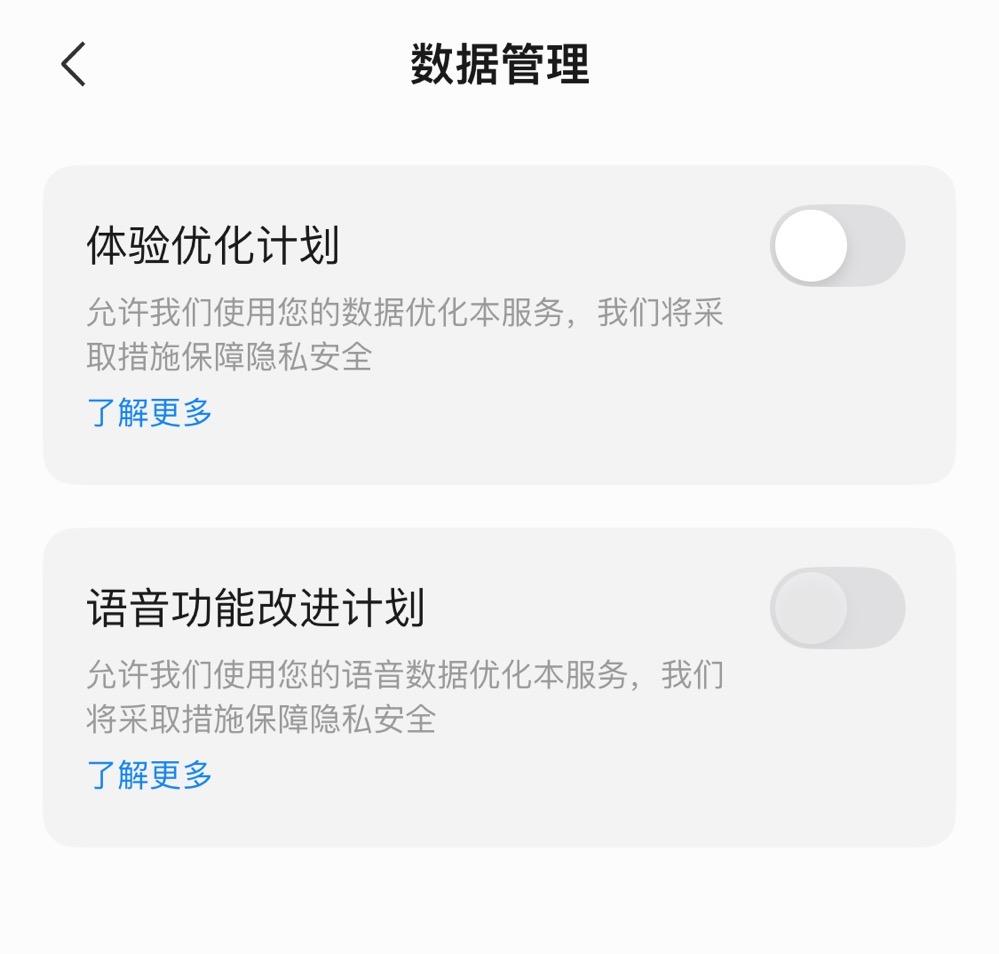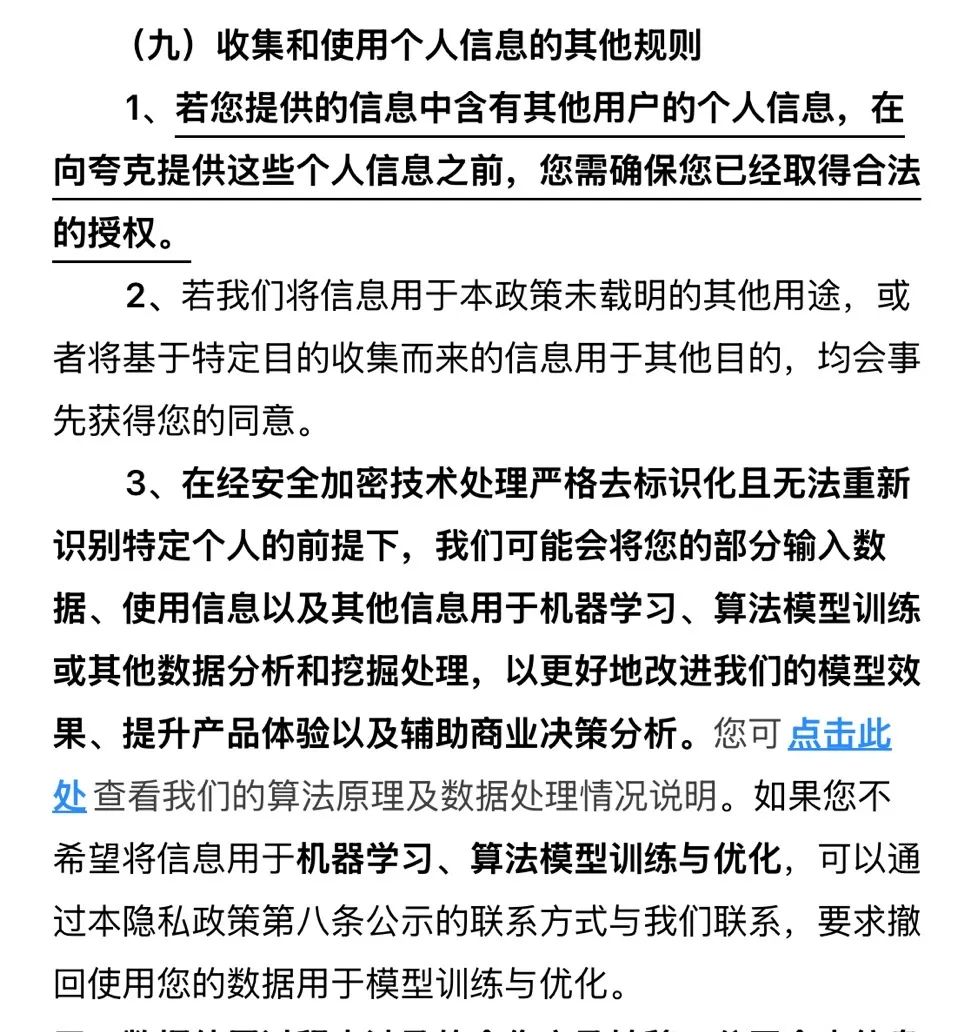AI Search Booms, Data Security Concerns Escalate: Quark's Position in the Evolving Landscape
![]() 03/21 2025
03/21 2025
![]() 396
396

In our previous articles, "New Standpoint" delved into the current competition for user mindshare in the realm of instant AI search, dominated by major social media platforms. Deepseek capitalizes on the strengths of textual content, while Xiaohongshu and Douyin rise by reverse-engineering textual content from video and image data. In essence, the battleground of instant AI search revolves around the deconstruction of content formats and the evolution of user ecosystem verticality.
Beyond social media, other players, such as chatbot and file management AI applications or platforms, also have distinct user mindsets to anchor. While they may not compete with social media platforms in terms of updating and storing instant UGC information, they excel in updating and storing professional content, file parsing, file management, and other chatbot and file management-related aspects.
With the launch of "New Quark" by Quark—featuring AI Superframe + Tongyi Large Model—Kimi, Doubao, Yuanbao, and Quark have emerged as the main contenders in the field of non-instant AI search.

On this battlefield, a nascent trend reveals that, given models' comparable long-term reasoning and multimodal capabilities, non-instant AI search will primarily compete for user mindshare concerning data security. Among them, Quark, due to its product characteristics, stands out as the one most needing to win over users' trust in data security. Whether it can succeed remains to be seen.
Moreover, as the only product in this fray that accumulated a user ecosystem before the prevalence of large language models, Quark's previous product inertia and position within Alibaba may be more intricate than its competitors. From a product manager's perspective, this complexity could be the biggest invisible hurdle to the product's rapid progress.
01. Quark's Position in AI Search
Quark achieved remarkable success last year, ranking first in SevenMai AI app downloads, surpassing Doubao despite its significant marketing investment. However, it's undeniable that Quark leveraged the advantage of "old trees sprouting new buds," which will start to show trade-offs this year, as analyzed below.
This year, with Tencent's Yuanbao entering the fray, the advantages of "old trees sprouting new buds" and marketing investment have temporarily failed to withstand the impact of DeepSeek + WeChat ecosystem content integration. Unlike WeChat's access to DeepSeek and Douyin Search in the realm of instant AI search, Tencent's Yuanbao targets Quark, Doubao, and Kimi. Thus far, BAT (ByteDance, Alibaba, Tencent) and Kimi, as a unicorn representative, have all placed their multi-end AI search products in the vast C-end market.
In terms of current product design, each of the four has its unique strengths and weaknesses.
Last year, Kimi, a unicorn in the To C field, exhibited a more Z-generation style in UI design and product logic on both mobile and web ends, differentiating itself from other similar products. Positioned as an AI-based information link for learning and office scenarios, its target users are those who understand how to verify information sources and do not rely on AI to process information. However, as a unicorn, Kimi's advantages are limited to efficient and concise product thinking and a young user ecosystem, with weaknesses in information channels and product ecosystems.
Doubao, which ranked second in downloads last year, resembles a collection of AI search + AI agent + multimodal AIGC tools. Although Doubao's current product form lacks a focused entry point or unique user mindset, it has time to continue exploring and clarifying the relationship between product logic and the Douyin ecosystem, thanks to its reliance on the user ecosystem of the entire Douyin product line and Douyin's investment gene.
Tencent's Yuanbao, a newcomer this year, can be considered the most basic product form among the four. It can temporarily conceal inconsistencies in product-level exploration under heavy investment with "WeChat-style simplicity." However, according to social media user reports, Pony Ma, asked about product requirements for Yuanbao, replied that some are already on the "schedule," indicating that Yuanbao's functions are accelerating iteration.
As a pre-large-model-era product, Quark has amassed a significant user ecosystem. Its product form combines a browser and cloud storage, with a high degree of product logic completion. The recent update of the AI Superframe and integration of the Tongyi Large Model can be seen as adding wings to an already formidable product. However, precisely because Quark also functions as a "cloud storage" and holds a vast amount of user files, building user trust in "data security" is paramount for Quark compared to the first three.
Although for Quark, the files stored by users in the cloud storage are distinct from the interactive files generated during AI search, they collectively shape users' overall "data security" mindset.
02. Quark's Data Security and Related Agreements
In the previous UGC era, due to UGC information's high immediacy, interactivity, and personalization, UGC platform users may have willingly ceded partial data permissions to the platform in exchange for a seamless "surfing" experience. However, non-instant AI search users, like Quark and Yuanbao, do not share the mindsets of "high immediacy" and "high interactivity" nor possess a "vertical user ecosystem." Thus, such platforms' user agreements are unsuitable for referencing social media's user agreement framework.
Recently, related incidents in the broader internet and AI search field have indicated that the vast majority of users are indeed increasingly concerned about data security.
Not only have recent hot events fundamentally altered the views of most internet users on data security, but Tencent's Yuanbao has also faced public controversies regarding user data agreements. Zhang Jun of Tencent specifically responded, "We will immediately correct it. The new data switch for (Tencent's Yuanbao) is turned off by default, and neither the input nor output content will be used for model optimization."

(Source: Yuanbao App Data Management Settings Interface)
"Default off" is indeed a highly valuable decision for users, benefiting from Yuanbao's initial product form. Without the baggage of previous product concerns, it can fully design the underlying user agreement based on current user needs.
When we open Quark and review the relevant text in the "Quark Basic Function Privacy Policy," updated on March 18 and effective from March 25, it states:
"Under the premise of strict de-identification and inability to re-identify specific individuals through secure encryption technology processing, we may use part of your input data, usage information, and other information for machine learning, algorithm model training, or other data analysis and mining processing to better improve our model effects, enhance product experience, and assist in commercial decision-making analysis."
If users do not wish for such situations, they must actively contact Quark to withdraw their consent. Unlike Yuanbao, Quark defaults to enabling the use of some user input data for model training, and withdrawal requires contacting through a specific channel.

Source: Screenshot from "Quark Basic Function Privacy Policy"
Quark specifically emphasizes the secure encryption processing of "strict de-identification and inability to re-identify specific individuals," but in reality, for user-input content, this measure only mitigates the risk of privacy leakage. If users hold relevant copyrights, such as the copyright of their input content and have not publicly published it, this agreement still poses a risk.
Of course, the main battleground for friction between AI application model optimization and user copyright content rights lies not in Quark but in AIGC fields such as Doubao and novel software.
03. Quark's Position in Alibaba and the Development of Chinese Internet
As mentioned, since last year, Quark's integration with AI has leveraged the advantage of "old trees sprouting new buds," which will start to show trade-offs this year.
In terms of data-related agreement policies, this "trade-off" as an "old tree" is emerging: Yuanbao can default to turning off the data switch, but Quark lacks a similarly described button, only offering buttons for advertisements, personalized recommendations, etc., which are turned on by default.
In fact, as AI search products, whether user data participation in optimization is enabled or disabled by default relates to the current status of the product matrices of Tencent and Alibaba, the parent companies of Yuanbao and Quark, in the AI era.
Yuanbao still relies on the WeChat ecosystem, one of the largest C-end traffic entry points. With ample relevant data, the AI search entry within WeChat can be viewed as Yuanbao's avatar within WeChat, making it advantageous for Yuanbao to default to not collecting user data for model optimization.
Quark, currently the largest AI to C traffic entry point within the Alibaba ecosystem, bears Alibaba's primary AI to C tasks, with the Tongyi app still in development. It is thus appropriate for Quark to default to enabling some user input or behavioral data for optimization.
As a large company, Alibaba's data security system naturally poses few issues, especially since Apple previously chose Alibaba as its artificial intelligence partner in China, a testament to Apple's endorsement of Alibaba's data security.
However, the author believes that as times change, Quark's current product design choices must adapt to the increasingly urgent data security needs of most internet users in the future.
Perhaps in the past, whether to accept all cookies (the data collection framework set by the platform) to participate in platform optimization was not a significant concern. Moreover, Chinese internet products rarely featured a cookie button, often replaced by user agreement privacy policies and other names buried in small text near the login button. The probability of users clicking to read them carefully is extremely low, and there is often no option to accept only the basic agreement.
However, due to some "trade-offs" left over from China's previous internet ecological characteristics, combined with the rapid AI progress in the Chinese internet today, Chinese "cookies" still warrant exploration, and the path to take is far from straightforward.

Currently, the European Union has introduced relevant AI bills involving normative frameworks related to data usage, influencing Quark's current cookie options, not solely due to Quark and Alibaba but also external factors.
However, given Quark's aforementioned characteristics (user mindset required for file storage functions, data collection-related agreements for AI search functions, Quark's position within Alibaba), changes in Quark's cookies will serve as an effective observation window for the evolution of Chinese internet cookies.
*The lead image and images in the text are sourced from the internet.







